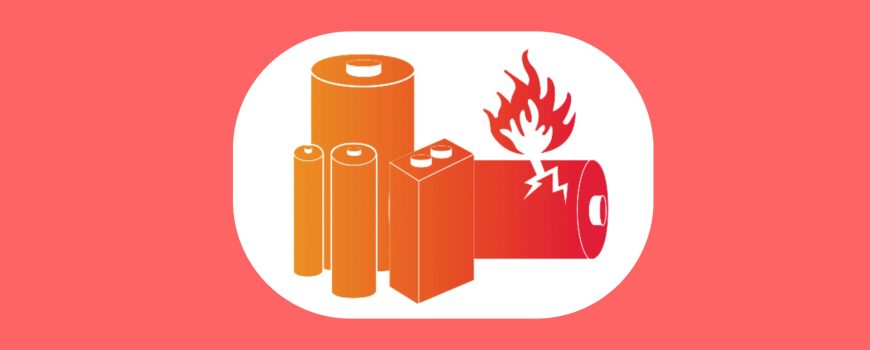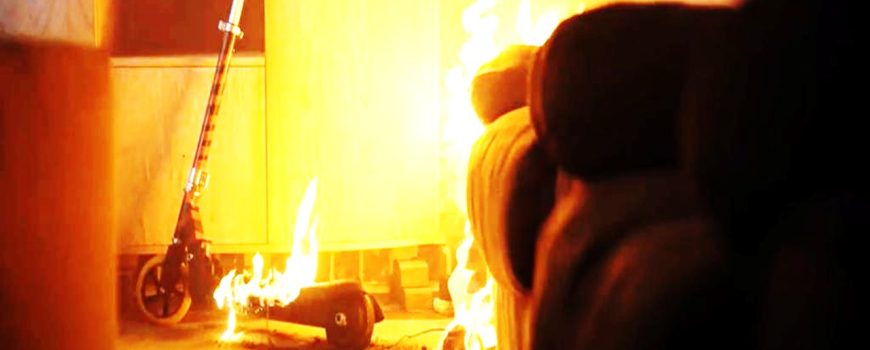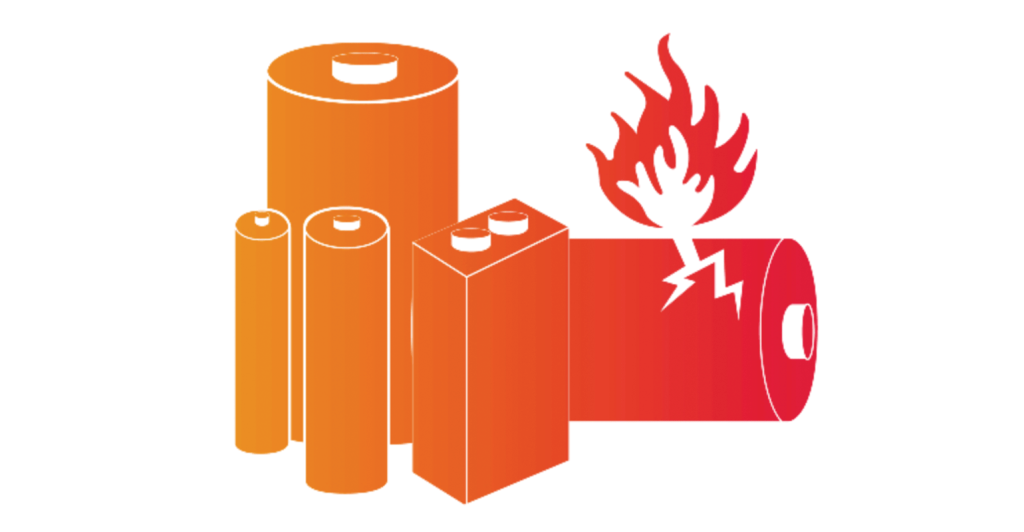Lithium batteries are becoming the preferred choice for photoelectric smoke alarms due to their superior lifespan compared to traditional 9V alkaline options. A long-lasting smoke alarm battery ensures continuous protection, unlike 9V batteries that need yearly replacement. However, recent media reports have raised concerns about lithium battery safety, with cases of overheating, combustion and fire. This leads to an important question—does the lithium battery inside your smoke alarm pose the same fire risk as other devices? A dependable smoke alarm battery is essential for proper functionality. ZEN interconnected photoelectric smoke alarms feature a sealed 10-year lithium battery, eliminating the need for replacements. Read on to find out more..
Why Lithium Batteries In Photoelectric Smoke Alarms?
Interconnected photoelectric smoke alarms rely on a dependable smoke alarm battery for continuous protection. Lithium batteries are now the preferred choice due to their superior lifespan and reliability compared to traditional 9V alkaline options. Conventional 9V smoke alarm batteries drain quickly and require annual replacement, often leading to the dreaded low battery ‘chirp.’ In frustration, many homeowners remove the battery to silence the noise—only to forget to replace it, leaving their home unprotected.
Lithium batteries have a significantly longer lifespan, designed to last for 10 years, which aligns with the recommended replacement interval for interconnected smoke alarms themselves. This longevity reduces the need for frequent smoke alarm battery changes, minimizing the risk of having photoelectric smoke alarms with a dead battery (or no battery), which could be life-threatening in a fire emergency.
Photoelectric Smoke Alarm Battery
Reliability And Performance
Lithium batteries inside photoelectric smoke alarms are also known for their stable voltage output. Unlike 9V alkaline batteries, which tend to lose power gradually, 3V lithium batteries maintain a consistent voltage until they are almost depleted. This stability is crucial in interconnected photoelectric smoke alarms, where consistent power is needed to ensure reliable operation.
Additionally, lithium batteries perform well in a wide range of temperatures, making them ideal for use in various parts of the home across different states and regions of Australia. The 10-year long life smoke alarm battery sealed inside ZEN photoelectric smoke alarms are non-removeable and non-replaceable. After 10 years the fire alarms (including the smoke alarm battery sealed inside them) are simply swapped out for new fire alarms.
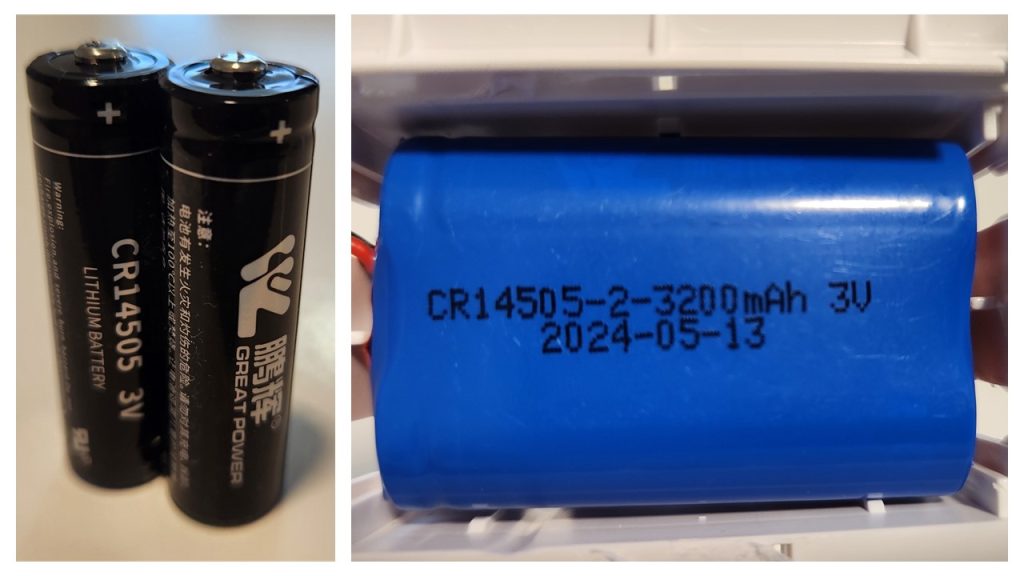
ZEN photoelectric smoke alarms are powered by two small 3V lithium CR14505 batteries shown above
Are The Lithium Batteries Inside My
Photoelectric Smoke Alarms A Fire Hazard?
No they aren’t. There are several reasons why we don’t hear news stories of lithium batteries spontaneously combusting inside photoelectric smoke alarms. The 10-year long life lithium batteries in photoelectric smoke alarms differ in design from lithium-ion batteries used in e-scooters, e-bikes etc. – it is these mobility devices which have seen a massive surge in the frequency of lithium battery fires as reported in the media. Photoelectric smoke alarms contain two small 3V, single-use, lithium batteries sealed within the fire alarm itself. These batteries are non-replaceable and are designed to deplete slowly and steadily over a 10-year lifespan.
At the end of this period, the interconnected photoelectric smoke alarms are disposed of in their entirety (including the smoke alarm battery sealed inside), and new interconnected photoelectric smoke alarms are installed in-situ. The same fire and thermal runaway risks associated with continuous and repeated recharging of large, high energy lithium-ion batteries used in e-bikes, e-scooters and other mobility devices are not present with the two small non-rechargeable lithium batteries inside photoelectric smoke alarms.
Furthermore, large high energy lithium batteries used in mobility transportation devices are often physically damaged due to bumps or knocks (riding an e-bike or e-scooter over the curbside or on an uneven concrete footpath etc.) which may contribute to thermal battery runway and pose a significant overheating / fire hazard. The same risk exposure for causing lithium battery damage is not present with photoelectric smoke alarms attached to a ceiling – once installed they do not move or get subjected to damaging dynamic forces.
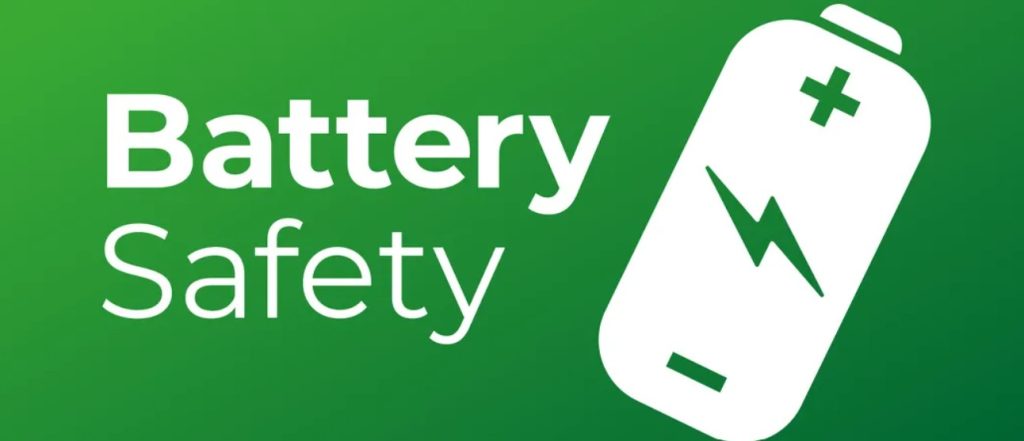
Safety Benefits of
Interconnected Photoelectric Smoke Alarms
Interconnected photoelectric smoke alarms provide a network of protection throughout the home. If one alarm detects smoke or fire, all connected photoelectric smoke alarms will sound, alerting occupants even if they are in a different part of the house. This is particularly important in larger homes or homes with multiple levels, where a fire might go unnoticed if alarms were not interconnected. The lithium battery’s long life and reliability enhance this system, ensuring that all the interconnected photoelectric smoke alarms are functional and ready to alert occupants in case of an emergency.
When purchasing interconnected photoelectric smoke alarms, it is essential to choose fire alarms that comply with Australian Standard 3786:2014, as indicated by the official Australian Standard red ‘5-tick’s mark on the packaging and the product itself. Product testing required of this standard helps ensure that the smoke alarm poses no electrical danger during normal use. Additionally, interconnected photoelectric smoke alarms should carry the electrical Regulatory Compliance Mark (RCM), affirming compliance with Australian electrical safety regulations outlined in Australian Standard 3820:2020. Avoiding cheap imported knock-offs without the RCM mark is crucial for smoke alarm battery safety – have a look at the rear of your photoelectric smoke alarms today – do they have the Regulatory Compliance Mark?
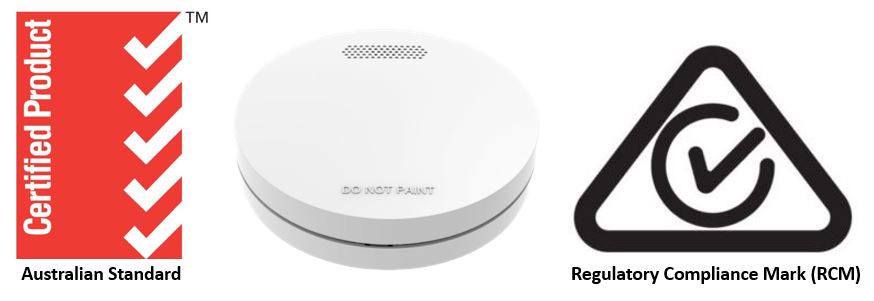
ZEN Smoke Alarms are Australian Standard Certified and contain the Regulatory Compliance Mark (RCM)
Photoelectric Smoke Alarms
Battery Environmental Considerations
The lithium batteries inside photoelectric smoke alarms are also more environmentally friendly compared to their alkaline counterparts. Fewer replacements mean less waste, which is a positive step towards reducing the environmental impact. Additionally, many lithium batteries are recyclable, which further minimizes their footprint. Lithium-ion batteries are a source of many valuable materials. If recycled, potentially 95% of battery components can be recovered for alternative use or may even be turned into new batteries. B-cycle is Australia’s national battery recycling scheme, supporting a collection network for used batteries.

Photoelectric Smoke Alarm Battery Safety – Conclusion
The smoke alarm battery is a vital component of modern home safety, ensuring continuous protection. Lithium batteries are now the preferred choice due to their long lifespan, reliability, and eco-friendly benefits. Unlike lithium batteries in other devices, the lithium smoke alarm battery is completely sealed and designed for safety, depleting slowly and steadily over a decade, eliminating any risk of overheating or fire hazards. ZEN interconnected photoelectric smoke alarms are powered by a sealed 10-year lithium smoke alarm battery, removing the need for annual replacements. Regularly testing your smoke alarms and replacing them every 10 years ensures they function effectively, providing peace of mind and long-term reliability.

Want to know more? Watch our ZEN Smoke Alarm YouTube channel or call us on 0478 596 402 today
We love talking smoke alarms!
ZEN Photoelectric Smoke Alarms
New Farm, QLD, 4005

